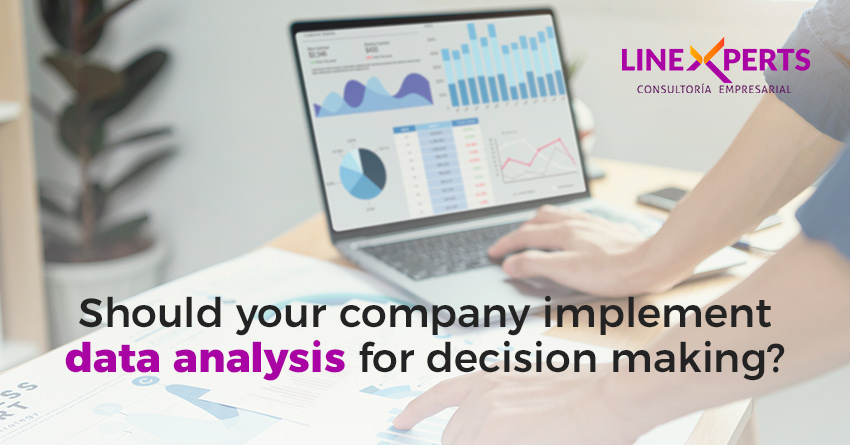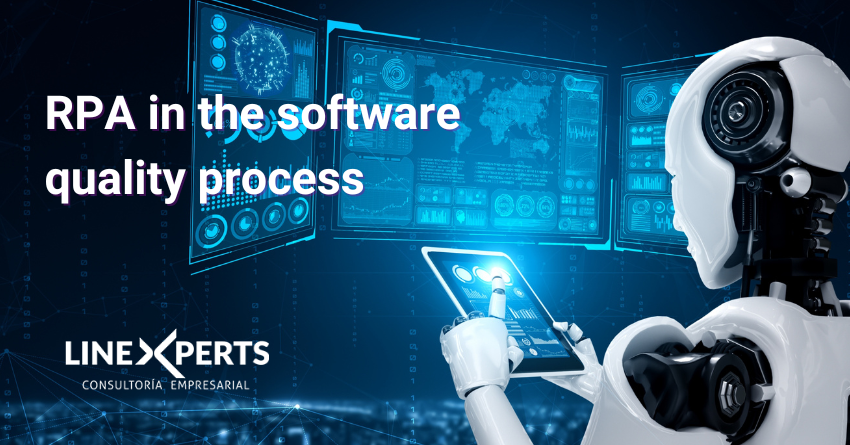Should your company implement data analysis for decision making?
What is data analysis?
When we talk about data analysis we are referring to a group of techniques and practices that help us extracting valuable information from a large amount of data, generally, this concept encompasses multiple stages and areas of knowledge: such as the process of collecting information, also known as Data Mining; the process of organization and administration of the data, in which the information collected is usually "filtered" to prioritize its veracity, and that they can really give us an objective look at reality; Finally, by analyzing the information we will obtain a general idea. In this measure, we can get a general idea of what data analysis is and its stages. The result of this process can help us make decisions.

A sea of information: Big data
The starting point of data analysis is precisely the information, furthermore is currently generated in an accelerated way, It becomes an important aspect of the information, thus in order to process it, programming languages such as Python or R must be used, having into account that systems such as Excel are not able to process the amount of information. We call this enormous amount of information Big Data, and you can imagine it as a sea of information, this information can come from different channels, such as social networks, browsers, search engines, and applications, among others.
A well calibrated compass
Decision-making cannot be an intuitive or arbitrary process, having into account that many times our cognitive biases can lead us to -inadequately- evaluate an opportunity, or underestimate risk. The data gives us an objective view of reality, comparing them with each other, identifying patterns and trends in numbers and graphs, and even identifying gaps; we must have a willing – attitude to read the story that the data wants to tell us. There is a likeliness with a well-calibrated compass and a map which they can guide us on the right path and not end up lost, walking in circles with the same strategies that do not connect with our potential customers or with products and/or services that do not fit their needs of consumers
The interpretation of the data
Even with a compass and map, the navigator must interpret them, locate himself and correct the course if necessary. I would like to guide you with the idea of how important it is to interpret the data, because you would get nothing by collecting thousands and thousands of bytes of information, processing, organizing and categorizing everything, even though later you did not formulate strategies based on this, concrete actions that may have an impact on your organization or company.

How can Data benefit my company?
Identify risks and opportunities: As we have already told you when we do data analysis what we are doing is identifying patterns and evaluating trends, in other words, we try to anticipate the future to be prepared better. As you would take an umbrella when you looked at the cloudy sky before leaving your house, decision-making based on data analysis allows us to take corrective actions in time. For instance, if a company sells a variety of products and while analyzing the data you see that one of them has been declining in sales for a long time, it may be an indicator that it is time to take a course of action regarding this specific product.
Flexibility: There are social and consumer dynamics that are impossible to foresee, however, there are many others that, by analyzing the data correctly, guide us with vision of what their trend will be like. The detection and prevention of fraud in online transactions such as purchases, financial activities, insurance, medical care are good examples of data analysis. Using analysis through Big data, data mining with suspicious patterns and behaviors can be identified.
To sum up, implementing data analysis for decision making in a company or organization can not only bring economic benefits, take advantage of market trends and the consumption dynamics of your customers to obtain greater benefits, but it can also provide greater scalability, ensuring that a company is structurally prepared for the constant changes in the market.






